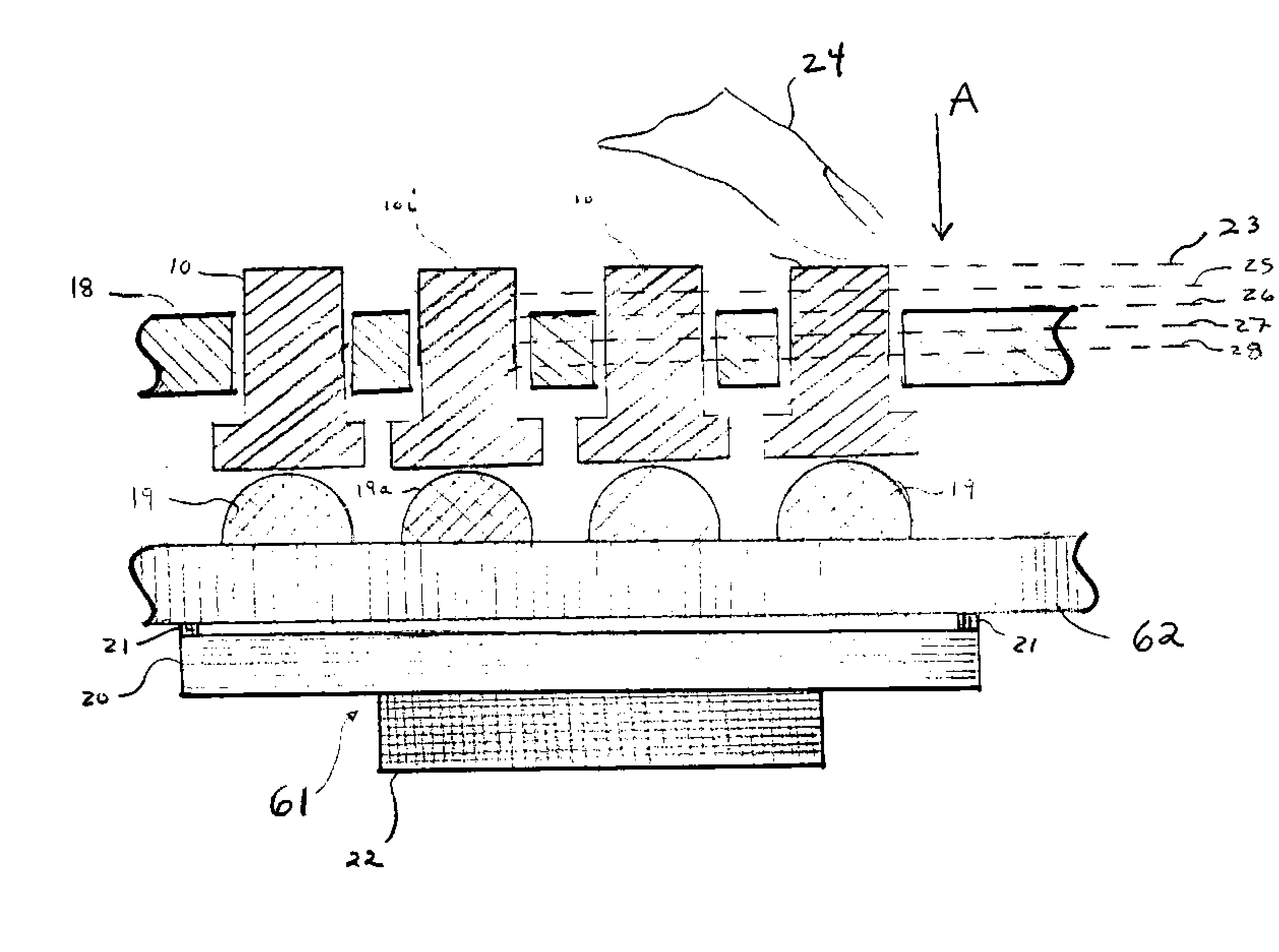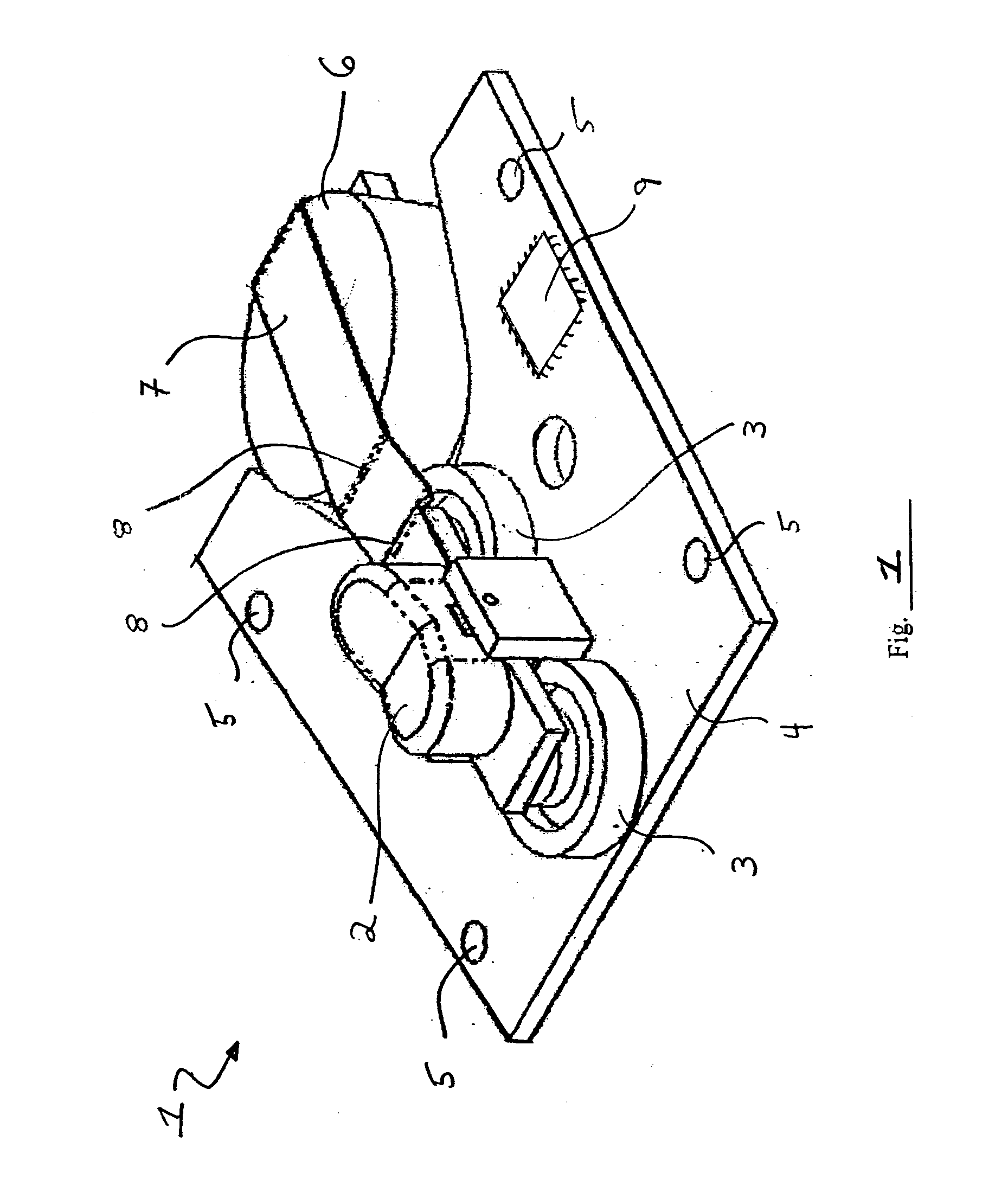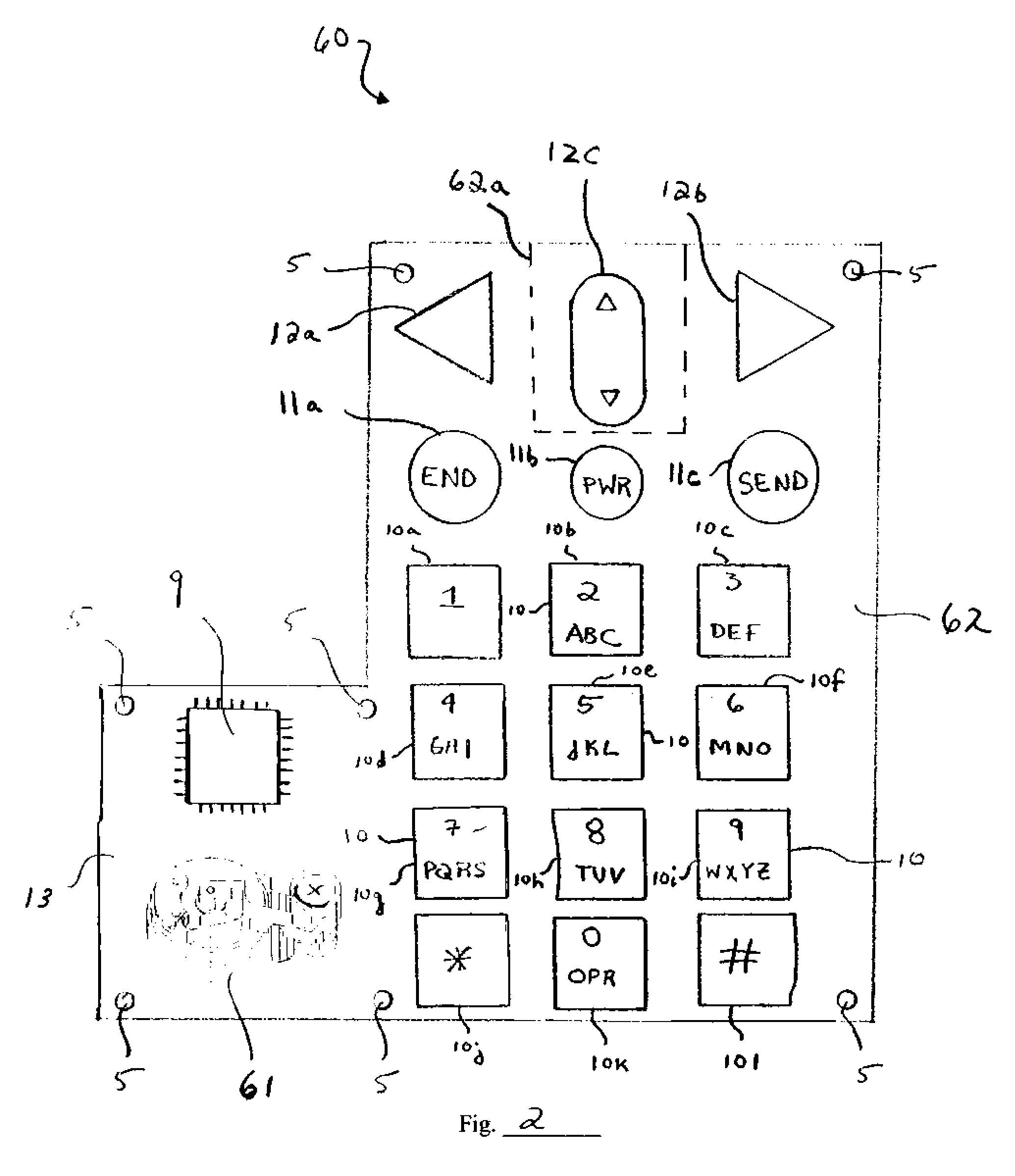Method and apparatus for providing tactile sensations
a tactile sensation and apparatus technology, applied in the field of methods and apparatus for providing tactile sensations, can solve the problems of limited physical queues, extremely limited and rudimentary mechanical confirmation of button selection, and primarily limited confirmation of input provided by users
- Summary
- Abstract
- Description
- Claims
- Application Information
AI Technical Summary
Benefits of technology
Problems solved by technology
Method used
Image
Examples
Embodiment Construction
[0012] The present invention includes methods and systems for providing tactile sensations. One embodiment includes methods and systems for providing tactile sensations to input devices, both mechanical and non-mechanical (for example soft-keys that are computer generated and displayed on a screen). Embodiments of the present invention can be utilized in wide variety of electronic devices including telephones, mobile telephones, remote controls, gamepads, joystick handles, automotive controls (radios, Compact Disc (CD) players, automobile functions, etc.), consumer electronics devices, Personal Digital Assistants (PDAs), personal computers, laptop computers, portable gaming devices, pagers, I-pagers, audio equipment, televisions, security or alarm systems, Automated Teller Machines (ATM), calculators, home appliances, and white goods.
[0013] Figure 1 shows one embodiment of the present invention. The apparatus 1 shown in Figure 1 includes an input device 2 having multiple positions f...
PUM
 Login to View More
Login to View More Abstract
Description
Claims
Application Information
 Login to View More
Login to View More - R&D
- Intellectual Property
- Life Sciences
- Materials
- Tech Scout
- Unparalleled Data Quality
- Higher Quality Content
- 60% Fewer Hallucinations
Browse by: Latest US Patents, China's latest patents, Technical Efficacy Thesaurus, Application Domain, Technology Topic, Popular Technical Reports.
© 2025 PatSnap. All rights reserved.Legal|Privacy policy|Modern Slavery Act Transparency Statement|Sitemap|About US| Contact US: help@patsnap.com



